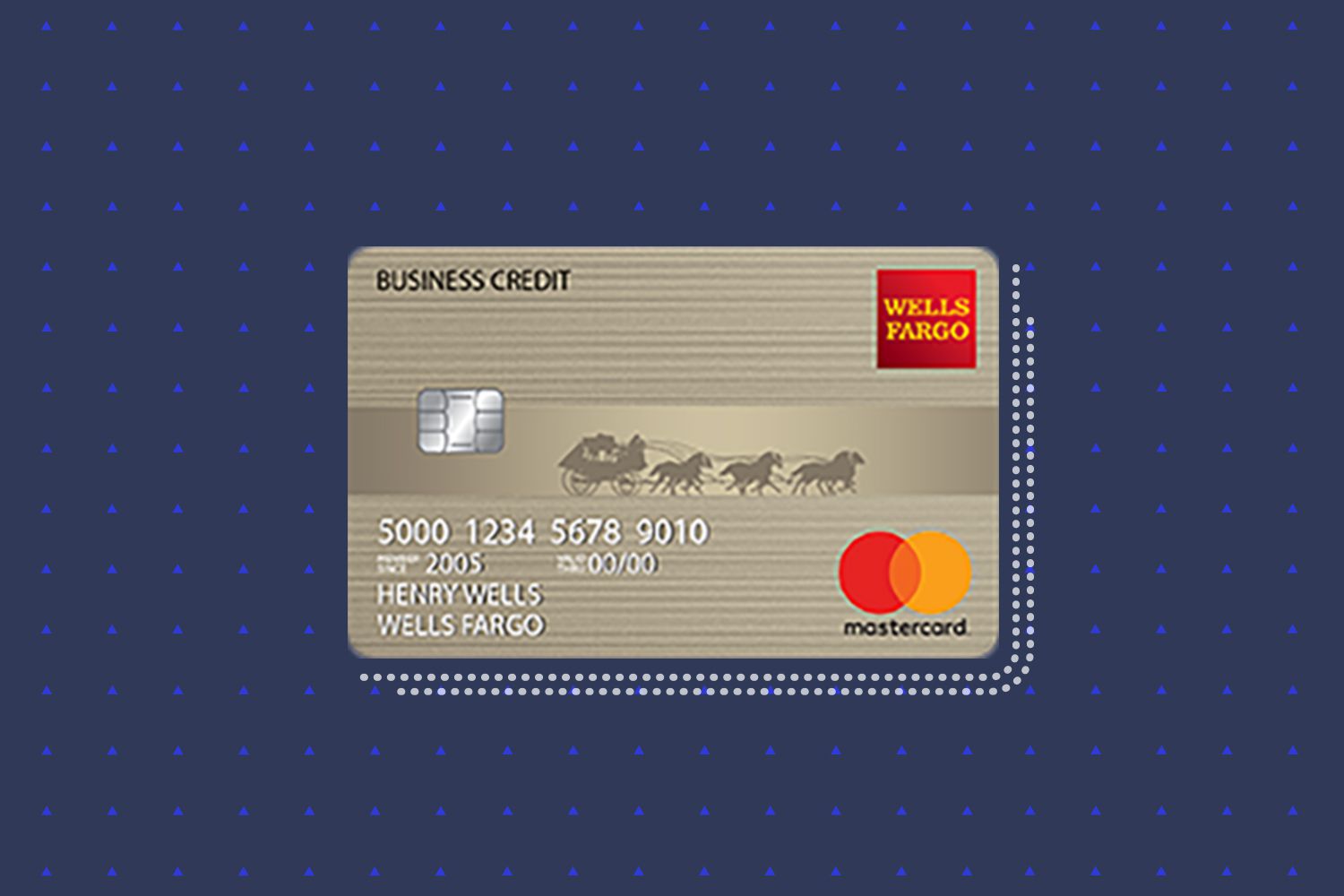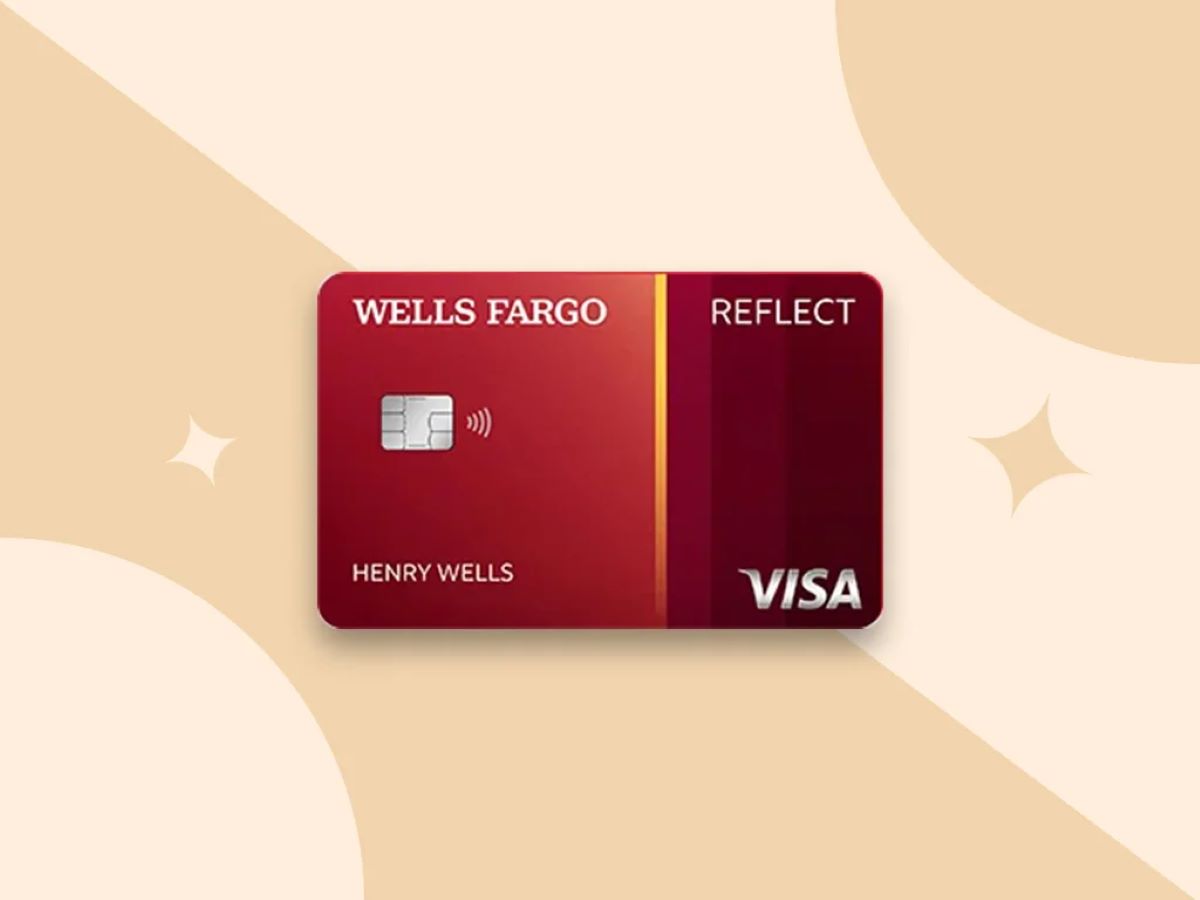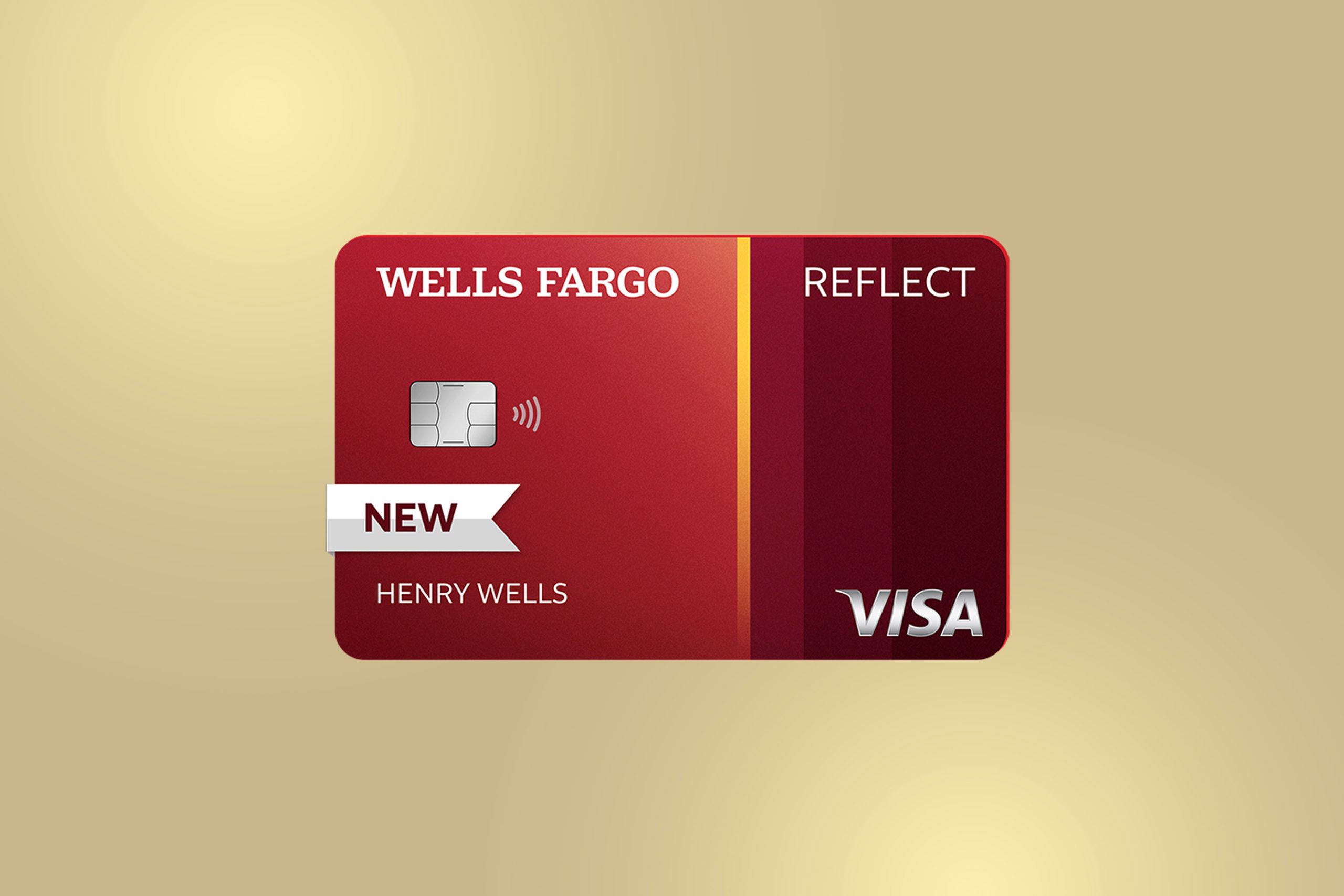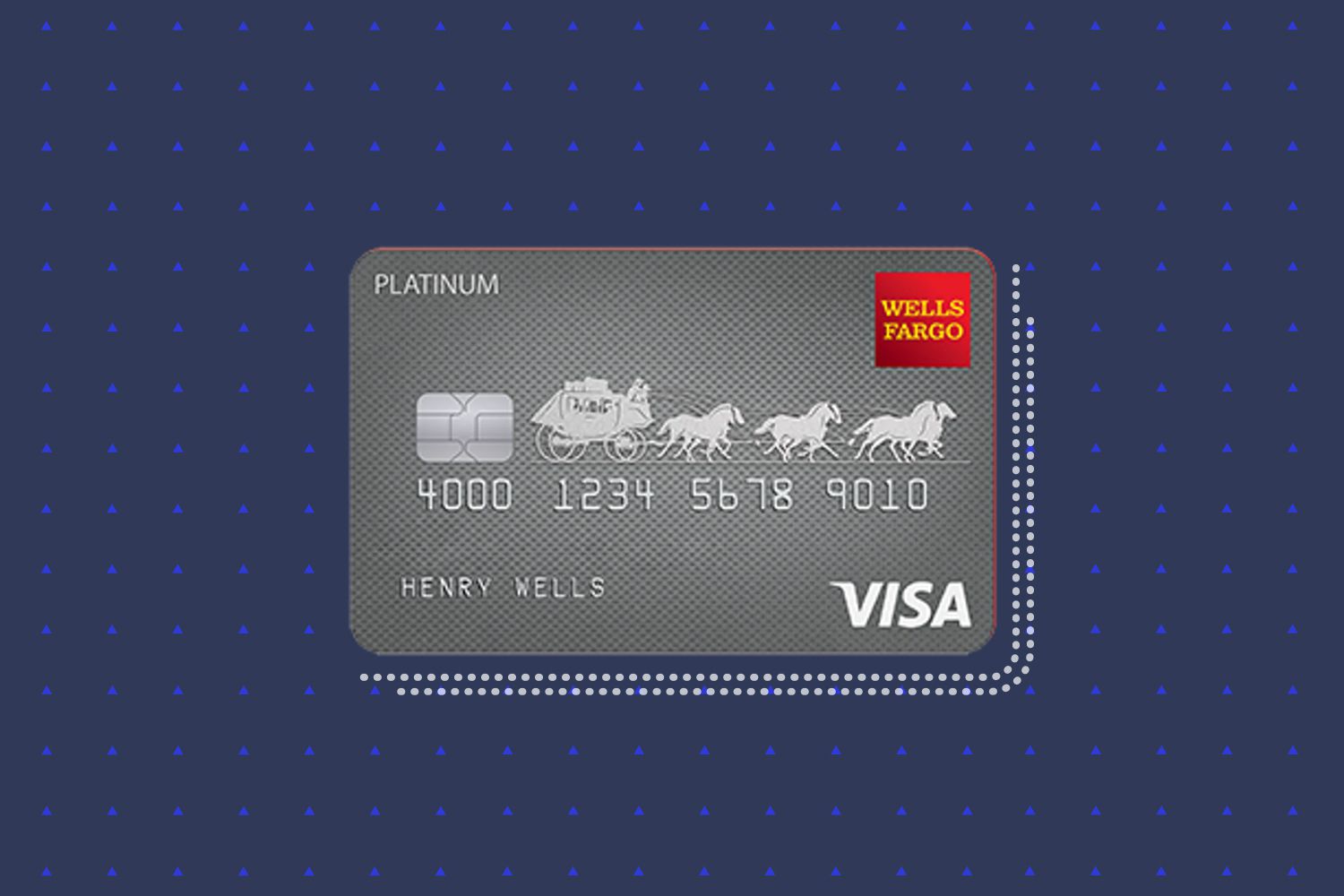Home>Finance>What Credit Score Is Needed For Wells Fargo Credit Card
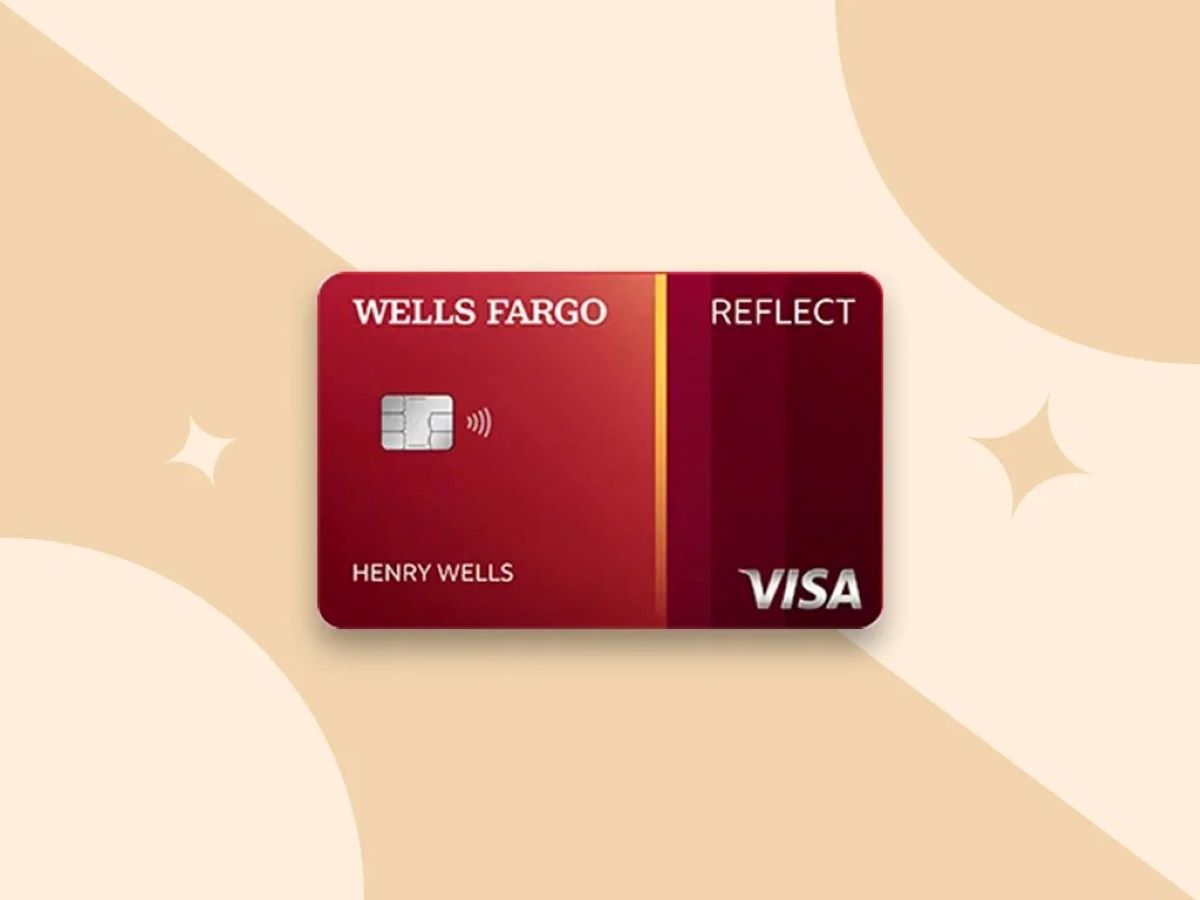

Finance
What Credit Score Is Needed For Wells Fargo Credit Card
Modified: February 21, 2024
Find out the minimum credit score requirement to qualify for a Wells Fargo credit card and start managing your finances today.
(Many of the links in this article redirect to a specific reviewed product. Your purchase of these products through affiliate links helps to generate commission for LiveWell, at no extra cost. Learn more)
Table of Contents
Introduction
When it comes to applying for a credit card, one of the factors that lenders consider is your credit score. Your credit score is a three-digit number that reflects your creditworthiness and is used by lenders to assess your ability to manage credit responsibly. Different credit cards have different credit score requirements, and if you’re considering applying for a Wells Fargo credit card, you may be wondering what credit score is needed to be approved.
Wells Fargo is one of the largest banks in the United States and offers a wide range of credit cards to suit different financial needs and goals. Whether you’re looking for a cash rewards card, a travel rewards card, or a card with special financing options, Wells Fargo has options to choose from. However, each Wells Fargo credit card has its own set of qualifying criteria, including minimum credit score requirements.
Understanding credit scores and how they are evaluated is crucial when it comes to applying for a credit card. Your credit score is based on several factors, including your payment history, the amount of debt you have, the length of your credit history, the types of credit you have, and any recent credit inquiries. Lenders use these scores to determine your creditworthiness, which in turn helps them assess the level of risk associated with lending you money.
In this article, we’ll explore the importance of credit scores for credit card approval, provide an overview of Wells Fargo credit cards, discuss the minimum credit score requirements for Wells Fargo credit cards, highlight the factors that can affect credit card approval, and offer tips on how to improve your credit score.
Understanding Credit Scores
Your credit score is a numerical representation of your creditworthiness and plays a significant role in determining your eligibility for credit cards, loans, mortgages, and other financial products. Credit scores are typically calculated by credit reporting agencies, such as Experian, TransUnion, and Equifax, using complex algorithms that analyze your credit history.
The most commonly used credit scoring model is the FICO score, which ranges from 300 to 850. A higher credit score indicates a lower credit risk and makes you more appealing to lenders. Here’s a breakdown of the different credit score ranges:
- Excellent: 800-850
- Very Good: 740-799
- Good: 670-739
- Fair: 580-669
- Poor: 300-579
Several factors contribute to your credit score, with each carrying a different level of significance. The most influential factors are:
- Payment History: Your track record of making credit payments on time is the most critical factor. Late payments can significantly lower your credit score.
- Utilization Ratio: This represents the amount of available credit you’re using. Keeping your credit utilization below 30% is generally recommended for maintaining a good credit score.
- Length of Credit History: The longer your credit history, the better. It demonstrates your ability to manage credit over an extended period.
- Credit Mix: Having a diverse mix of credit types, such as credit cards, loans, and mortgages, can have a positive impact on your credit score.
- New Credit Inquiries: Applying for multiple credit accounts within a short period can indicate financial instability and may negatively affect your score.
It’s important to note that different credit scoring models may weigh these factors differently, and lenders may have specific requirements and preferences when evaluating creditworthiness.
Understanding your credit score and the factors that influence it is crucial for managing your financial health. By maintaining a good credit score, you can unlock various benefits, including access to better credit card offers, lower interest rates, and increased borrowing power.
Importance of Credit Scores for Credit Card Approval
When you apply for a credit card, the lender wants to assess the level of risk associated with extending credit to you. This is where your credit score comes into play. Your credit score serves as a quick reference for lenders to evaluate your creditworthiness and make decisions regarding your credit card application.
A high credit score demonstrates to lenders that you have a history of responsible credit management and are likely to make payments on time. This gives them confidence in your ability to handle credit responsibly. As a result, you are more likely to be approved for credit cards with higher credit limits, better rewards, and lower interest rates.
On the other hand, if you have a low credit score, lenders may consider you a higher credit risk. This could result in your credit card application being denied or getting approved for cards with lower credit limits and higher interest rates. In some cases, you may be offered secured credit cards, where you must provide a security deposit to access credit.
Not only does your credit score play a significant role in credit card approval, but it also impacts other aspects of your financial life. For example, a poor credit score can make it difficult to qualify for loans, mortgages, or even rent an apartment. It can also affect your ability to secure favorable insurance rates or employment opportunities that require a credit check.
By maintaining a good credit score, you not only increase your chances of credit card approval but also gain access to a variety of perks and benefits. These may include cashback rewards, travel points, exclusive discounts, and introductory 0% APR offers. Moreover, a good credit score allows you to take advantage of balance transfer options and enjoy lower interest rates, ultimately saving you money in the long run.
It’s important to note that although credit scores are crucial in the credit card approval process, they are not the sole factor considered. Lenders also assess your income, employment history, and overall financial stability. However, having a strong credit score will undoubtedly give you an edge when it comes to securing the best credit card offers and terms.
Wells Fargo Credit Cards Overview
Wells Fargo is a renowned financial institution offering a wide range of credit cards to suit different financial needs and lifestyles. Whether you’re looking for a card that offers cash back rewards, travel benefits, or special financing options, Wells Fargo has options to choose from.
One of the popular categories of Wells Fargo credit cards is cash rewards cards. These cards allow you to earn cash back on your purchases, typically ranging from 1% to 2% on general spending and higher rates on specific categories such as groceries, gas, or dining. Some of the cash rewards cards offered by Wells Fargo include the Wells Fargo Cash Wise Visa® card and the Wells Fargo Propel American Express® card.
If you’re a frequent traveler, Wells Fargo offers travel rewards cards that can help you earn points or miles towards flights, hotels, and other travel expenses. For example, the Wells Fargo Visa Signature® card rewards you with bonus points on qualifying travel expenses and also provides travel benefits like complimentary concierge service and travel insurance coverage.
For individuals looking to finance their purchases, Wells Fargo provides credit cards with special financing options. These cards often come with an introductory 0% APR period, allowing you to make purchases or transfer balances without incurring interest charges for a specified time. The Wells Fargo Platinum card is one such option that provides an extended 0% APR period for balance transfers and purchases.
In addition to these categories, Wells Fargo offers a range of other credit cards tailored to different financial needs. These include secured credit cards for individuals looking to build credit or rebuild their credit history, student credit cards designed for students who want to start building credit, and credit cards that provide exclusive benefits to customers with premium banking relationships.
Wells Fargo credit cards also come with features like mobile banking, online account management, fraud protection, and customer service support. Many of their cards also offer contactless payment options for added convenience and security.
Before applying for a Wells Fargo credit card, it’s essential to review the specific benefits, fees, and terms associated with each card. Consider your spending habits, financial goals, and credit score to select the card that best aligns with your needs.
Minimum Credit Score Requirements for Wells Fargo Credit Cards
When it comes to the minimum credit score requirements for Wells Fargo credit cards, it’s important to understand that each card has its own set of criteria. Wells Fargo offers a variety of credit cards tailored to different financial situations, which means that the required credit score may vary depending on the specific card you’re interested in.
For some Wells Fargo credit cards, a good to excellent credit score is typically required. This generally falls within the range of 670 to 850 according to the FICO scoring model. Cards that offer higher rewards, lower interest rates, or specialized benefits often have stricter requirements and may require an excellent credit score of 740 or above.
On the other hand, if you have a fair or average credit score, there are Wells Fargo credit cards available for you as well. These cards may have more lenient qualifying criteria and could be a suitable option for individuals looking to build or rebuild their credit.
It’s important to review the specific credit score requirements outlined by Wells Fargo for each individual credit card. The bank may also take into account other factors such as income, employment history, and existing banking relationships when evaluating your application. Keep in mind that meeting the minimum credit score requirement does not guarantee approval, as lenders consider multiple factors when assessing creditworthiness.
If you’re unsure of your credit score, you can obtain a free copy of your credit report from each of the major credit reporting agencies once a year. This allows you to review your credit history and identify any inaccuracies or areas for improvement. Monitoring your credit score regularly and taking steps to improve it can increase your chances of being approved for a Wells Fargo credit card.
Ultimately, the specific credit score requirements for Wells Fargo credit cards can vary, so it’s important to research each card thoroughly and assess your own credit profile to choose the card that best fits your financial situation.
Factors Affecting Credit Card Approval
When applying for a credit card, several factors come into play that can impact whether your application will be approved or denied. Understanding these factors is crucial to increase your chances of getting approved for the credit card you desire. Here are some key factors that can affect credit card approval:
- Credit Score: Your credit score is one of the primary factors lenders consider when evaluating your creditworthiness. A higher credit score indicates lower credit risk and makes you more attractive to lenders.
- Payment History: Lenders want to see a history of on-time payments. Late payments or a history of missed payments can raise concerns about your ability to manage credit responsibly.
- Debt-to-Income Ratio: Lenders assess your debt-to-income ratio to determine your ability to handle additional debt. A high debt-to-income ratio may indicate financial strain and could impact your credit card approval.
- Employment and Income: Lenders may consider your employment status and income to assess your ability to make timely payments. A stable job and higher income can positively influence your credit card approval.
- Credit History: The length of your credit history also plays a role. A longer credit history with a mix of credit accounts demonstrates your experience in managing credit, which can be favorable to lenders.
- Existing Debt: Lenders consider your existing debt obligations, such as loans and other credit cards. Having too much outstanding debt may raise concerns about your ability to take on additional credit.
- Recent Credit Inquiries: A large number of recent credit inquiries can indicate that you are actively seeking credit and may raise concerns for lenders. It’s generally recommended to avoid multiple credit inquiries close together.
- Banking Relationship: Some banks, including Wells Fargo, may take into account your existing relationship with them. Having a checking or savings account with the bank may positively influence your credit card approval.
It’s important to note that each lender, including Wells Fargo, may have its own specific criteria and weighting for these factors. Additionally, different credit cards within the same bank may have varying requirements. Therefore, it’s essential to review the specific guidelines provided by the lender for the credit card you wish to apply for.
By understanding the factors that affect credit card approval, you can take steps to improve your chances of being approved. This may include paying bills on time, reducing debt, maintaining a stable income, and keeping credit inquiries to a minimum. Monitoring your credit score regularly and addressing any issues can also contribute to a stronger credit profile.
How to Improve Your Credit Score
Improving your credit score is crucial for securing better credit card offers and financial opportunities. While it takes time and discipline, there are several steps you can take to start improving your credit score today. Here are some effective strategies:
- PAY YOUR BILLS ON TIME: Your payment history is the most critical factor impacting your credit score. Make it a priority to pay all of your bills, including credit card payments, loan installments, and utility bills, on time every month.
- REDUCE YOUR DEBT: High levels of debt can negatively impact your credit score. Develop a repayment plan to reduce your outstanding balances and focus on paying off high-interest debt first. Aim to keep your credit utilization ratio below 30%.
- AVOID CLOSING OLD ACCOUNTS: Length of credit history is a factor in your credit score. Closing old accounts can shorten your credit history, potentially lowering your score. Instead, consider keeping those accounts open with occasional usage or small transactions.
- MINIMIZE NEW CREDIT APPLICATIONS: Each time you apply for new credit, it triggers a hard inquiry on your credit report, temporarily lowering your score. Only apply for credit when necessary and be selective about the credit cards or loans you seek.
- CHECK YOUR CREDIT REPORT FOR ERRORS: Regularly review your credit report for any errors or inaccuracies that could be negatively affecting your score. Dispute any discrepancies you find and work with the credit reporting agencies to correct them.
- DIVERSIFY YOUR CREDIT MIX: Having a mix of credit accounts, such as credit cards, loans, and mortgages, can positively impact your credit score. However, make sure to only take on credit that you can responsibly manage.
- KEEP YOUR CREDIT ACCOUNTS OPEN: Closing credit accounts can lower your available credit and potentially increase your credit utilization ratio. Keeping accounts open, even if you don’t frequently use them, can help maintain a consistent credit history.
- GET ADDED AS AN AUTHORIZED USER: If you have a trusted family member or friend with good credit, consider asking them to add you as an authorized user on their credit card. Their positive credit history can reflect positively on your credit score.
Improving your credit score is a gradual process that requires consistency and responsible financial habits. It’s important to be patient and stay committed to sound credit practices. Regularly monitor your credit score and track your progress as you implement these strategies. Over time, you can see significant improvements in your creditworthiness and open doors to better credit card offers and financial opportunities.
Conclusion
When it comes to applying for a Wells Fargo credit card or any credit card in general, having a good credit score is crucial. Your credit score plays a significant role in determining whether you’ll be approved for a credit card, the credit limit you’ll receive, and the terms and benefits associated with the card.
Understanding your credit score, as well as the factors that affect it, is essential for managing your financial health and maximizing your chances of credit card approval. Maintaining a good payment history, keeping your credit utilization low, and managing your debt responsibly are some of the key steps you can take to improve your credit score.
Wells Fargo offers a diverse range of credit cards to cater to various financial needs and lifestyles. Each card has its own set of requirements, including minimum credit score thresholds. Before applying for a Wells Fargo credit card, it’s important to research and understand the specific qualifications of the card you’re interested in.
By maintaining a good credit score and applying for the right credit card, you can not only gain access to the benefits and rewards offered by Wells Fargo but also enhance your overall financial well-being. Remember to review your credit report regularly, address any inaccuracies or errors, and practice responsible credit habits to continue improving your credit score.
Ultimately, with an understanding of credit scores, diligent financial management, and a careful selection of Wells Fargo credit cards, you can make informed decisions that lead to better credit outcomes and financial success.
